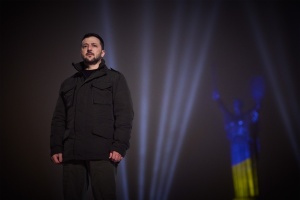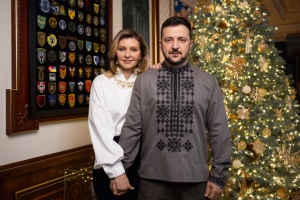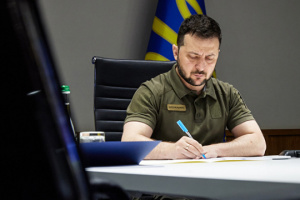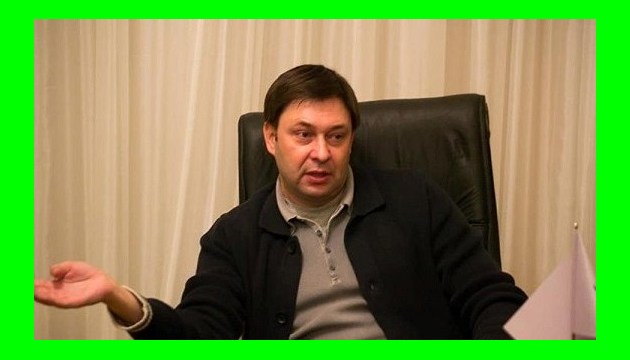
Is Vyshinsky a journalist and RIA Novosti Ukraine a media outlet?
The failed murder of Russian journalist Arkady Babchenko could have been a good reason for the Kremlin to continue calling Ukraine a "failed state" unable to protect its citizens, with a level of violence "worse than in Africa," which has no freedom of speech and persecutes journalists. It was like this, but only for one day.
Fortunately, a special operation conducted by the Ukrainian Security Service (SBU) saved the life of the journalist - an irreconcilable critic of the Putin regime - and removed image and reputation risks for Ukraine provoked by the Russian side.
However, the Russian propaganda machine will obviously continue to yell about "attempts by the Kyiv regime to forcefully suppress any manifestations of objectivity," "legal arbitrariness, unprincipled struggle against any dissent that prevails in Ukraine" (according to the Russian Foreign Ministry), with a focus on another case - the arrest of RIA Novosti Ukraine chief Kirill Vyshinsky.
The detention of Vyshinsky in Kyiv on May 15, 2018, and, in fact, the breaking of one of the chains of this huge machine immediately triggered a violent reaction from Russia.
Margarita Simonyan, the chief editor of the Rossiya Segodnya news agency and the Russia Today television channel, was one of the first to respond to arrests and searches in Kyiv. "They have broken into our office," she wrote on Twitter, commenting on searches conducted at RIA Novosti Ukraine in the Ukrainian capital.
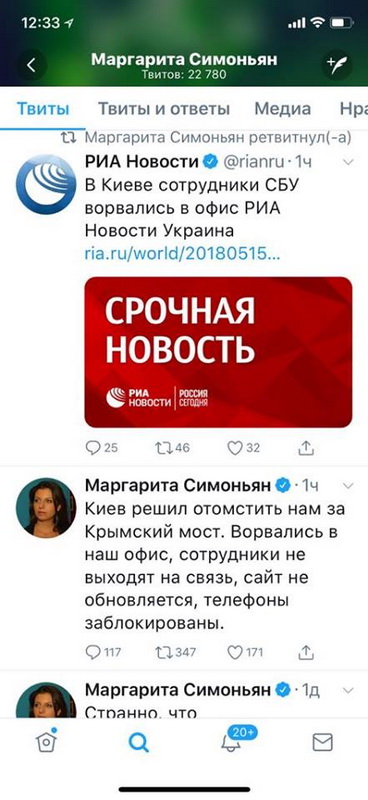
She forced many Ukrainian journalists to rack their brains and search the Internet - maybe, law enforcement officers conduct searches not only at RIA Novosti Ukraine, but also in the offices of Rossiya Segodnya and Russia Today in Kyiv? Is RIA Novosti Ukraine not a separate Ukrainian media outlet, but an office of propaganda media outlets of the aggressor country, which are banned in Ukraine?
Simonyan later understood a "blunder" in her first reaction and began to write that RIA Novosti Ukraine "is legally unaffiliated with us, but is our information partner."
Consciously or not, OSCE Representative on Freedom of the Media Harlem Desir brought some confusion with his statement on May 15, raising concern "over a raid by security services of Ukraine against Russian state news agency RIA Novosti and TV channel RT offices in Kyiv as well as the searches of homes of journalists and their arrests." Desir clearly spoke about the offices of Russian media outlets in Ukraine and called on the Ukrainian authorities "to refrain from imposing unnecessary limitations on the work of foreign journalists." "I recall that under the Helsinki Final Act, the OSCE participating states have committed to facilitating the conditions under which journalists from one participating state exercise their profession in another participating state. This applies to the accreditation of journalists and correspondents of foreign media," he said.
Let's suppose that the OSCE's main media defender was a little unaware of the situation and somewhat uninformed. After all, there was an arrest, not "arrests," searches and investigative actions, rather than a "raid," RIA Novosti Ukraine, rather than Russian state news agency RIA Novosti and TV channel RT offices. And there were no foreign journalists who "exercise their profession in another participating state." And, in fact, work in Kyiv does not require accreditation of journalists and correspondents of foreign media.
Meanwhile, the Russian Foreign Ministry, in a statement on May 17 on Vyshinsky's arrest, just wrote about "RIA Novosti Ukraine head Vyshinsky" without indicating the Russian or Ukrainian nature of the "media" and the "journalist."
Reading these reviews about an "attack on free speech" in Ukraine, it was not clear whether Kirill Vyshinsky is a Ukrainian or Russian journalist and whether RIA Novosti Ukraine is a Ukrainian or Russian media outlet?
The Russian side now mainly says that Vyshinsky is a Ukrainian journalist and worked in a Ukrainian media outlet, although he has "Russian citizenship." "Kirill Vyshinsky is a Ukrainian journalist, and he worked in a Ukrainian media outlet. He really has Russian citizenship, and his media has really been our partner," Simonyan told TVC television channel on May 20.
However, on the same day, Russian Foreign Ministry spokesperson Maria Zakharova, while commenting on searches at RIA Novosti Ukraine and Vyshinsky's detention, constantly spoke on one program about Rossiya Segodnya and a Rossiya Segodnya correspondent in Ukraine, emphasizing "impeccable legality" of such activities.
"The fact is that a Rossiya Segodnya correspondent in Ukraine worked as a declared correspondent and his journalistic activity, not any other activity, was the reason for the searches and then arrests," Zakharova said.
At the same time, she cynically pointed to a "fundamental difference" in situations of Ukrainian journalist Roman Sushchenko, who was illegally arrested in Moscow, and Vyshinsky: "With regard to Sushchenko… he was not a journalist when he entered Russia. His documents prove that he did not submit an application for a journalistic visa… That is why it would be wrong to compare Sushchenko with the Rossiya Segodnya correspondents in Ukraine not only in terms of moral standards, but also in legal terms."
According to Zakharova, "Rossiya Segodnya journalists did not hide the fact that they had the whole package of Ukrainian documents for carrying out their activities. They were declared, they signed their materials."
In the end, Zakharova spoke about a mythical news agency "Rossiya Segodnya" in Ukraine: "Rossiya Segodnya news agency on Ukrainian territory - this agency was a partner agency for Russian agency Rossiya Segodnya."
Ukrinform decided to find out what status RIA Novosti Ukraine has and whether journalist Vyshinsky is Russian or Ukrainian, given that on May 15, 2018, the Russian Investigative Committee opened a criminal case "about illegal detention and prosecution of RIA Novosti Ukraine editor-in-chief Kirill Vyshinsky," who, according to the same committee, received Russian citizenship in September 2015.
So if you visit RIA Novosti Ukraine's website, it is impossible to get some information about the agency since there is no section that would tell us about the media outlet. There are only contact details of the bureau and the press center - Kyiv, 16 Shota Rustaveli Street. The Facebook page of the agency, by the way, gives other contact details - Kyiv, 28A Instytutska Street.
Such "modesty" is clear. In fact, before the beginning of the Russian-Ukrainian war in 2014, this resource worked as an office of the Federal State Unitary Enterprise Russian Agency of International Information "RIA Novosti" officially registered in Ukraine. However, on December 9, 2013, as part of increasing the effectiveness of Russian propaganda media Putin signed a decree liquidating Russian Agency of International Information "RIA Novosti" and creating on its basis another federal state unitary enterprise - International Information Agency Rossiya Segodnya, which was headed by Dmitry Kiselyov, Putin's lickspittle, who is well-known to Ukrainians. RIA Novosti became one of the products of the huge media group Rossiya Segodnya.
According to Roskomnadzor, from April 8, 2014, RIA Novosti was registered as an "information agency" and "network edition." Its founder is the Federal State Unitary Enterprise International Information Agency Rossiya Segodnya.
Obviously, after the liquidation of the Federal State Unitary Enterprise Russian Agency of International Information "RIA Novosti" there can be no talk about some office of this non-existent enterprise in a foreign country. For legal work in Ukraine it was necessary to register an office of the Federal State Unitary Enterprise International Information Agency Rossiya Segodnya (currently under sanctions in accordance with the decision of the National Security and Defense Council of Ukraine dated April 28, 2017).
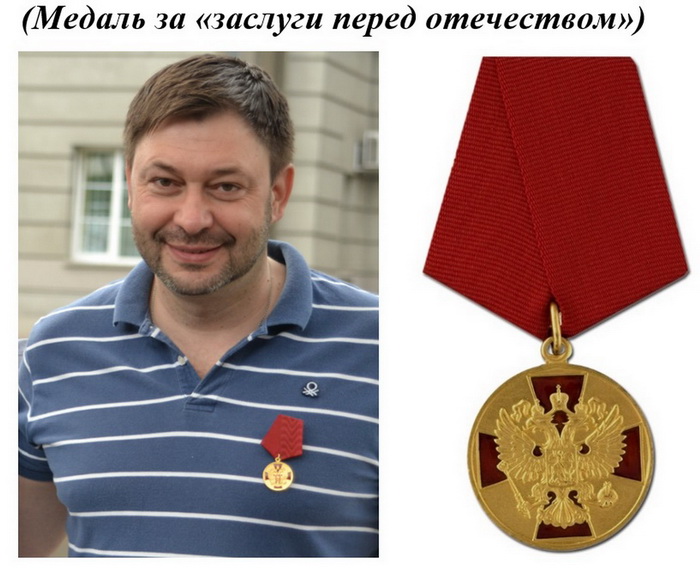
Ukrinform asked the Ukrainian Economic Development and Trade Ministry whether RIA Novosti Ukraine is registered in Ukraine as an office of a foreign company, or whether an office of the Federal State Unitary Enterprise International Information Agency Rossiya Segodnya is registered in the country.
The ministry provided a list of offices of Russian media outlets registered in Ukraine as of May 23, 2018.
According to the list, the Federal State Unitary Enterprise Russian Agency of International Information "RIA Novosti" was registered on February 3, 2006 at 3 Stanislavskoho Street (room No. 50) in Kyiv, and its head was Mykola Borodin.
International Information Agency Rossiya Segodnya does not have an office in Ukraine.
Maybe RIA Novosti Ukraine is still a Ukrainian media outlet, as Simonyan says?
To answer this question, Ukrinform asked the Ukrainian Justice Ministry whether RIA Novosti Ukraine is registered in the state register of print media and news agencies as subjects of information activity, as well as whether Kirill Vyshinsky is among the founders of other media outlets in Ukraine. The answer was not surprising: "We inform you that according to the information contained in the register, the information you requested is not available."
Thus, RIA Novosti Ukraine is currently not a registered media outlet, neither a Ukrainian nor Russian one, which should be registered in accordance with Ukrainian legislation.
The only obvious thing is that the content of the website is clearly anti-Ukrainian. It is clear to everyone who visits it even without linguistic expertise that a number of publications directly justify Russia's aggression against Ukraine, annexation of Crimea, and stir up interethnic hostility in Ukraine.

It is also not worth noting that RIA Novosti Ukraine chief Kirill Vyshinsky is allegedly a journalist, and whether the "declared" correspondent had "the whole package of Ukrainian documents."
Professionally, he is a merchant, being the founder and owner of a number of companies (according to the SBU, with all signs of fictitiousness), which, although engaged in media-related activities, are not related to direct journalist activities. One of the companies is Interselect Ltd, which is engaged in data processing, information placement on websites and related activities.
According to the SBU, this limited liability company operated under the brand "RIA Novosti Ukraine." Its employees were registered as individual entrepreneurs and received salaries through fraudulent schemes, evading the payment of necessary taxes.
According to the special service, to cover its activity the management of Rossiya Segodnya used a scheme through the signing of a cooperation agreement between Interselect Ltd. and a fictitious company in Serbia's capital, Belgrade, which transferred nearly 53,000 "Russian" euros every month. Financial data in the materials show that the money was used for the needs of RIA Novosti Ukraine, and its amount was approved directly in the central editorial board of Rossiya Segodnya.
SBU operatives established that in the spring of 2014 Vyshinsky left for Crimea, where, on the instruction of Rossiya Segodnya management, he took part in promotional actions aimed at supporting annexation and joining the peninsula to Russia. After returning to Kyiv, he involved subordinate journalists to produce materials in favor of terrorist organizations "LPR/DPR." Thus, according to the SBU, leading a virtually clandestine office of the propaganda mouthpiece of the aggressor state, Vyshinsky actively participated in subversive information actions within a hybrid war against our country.
It must be admitted that he worked really effectively, and in April 2014, the Russian defense minister awarded him a medal for the return of Crimea, and in May 2014, the Russian president signed a decree awarding him a medal "For Services to the Fatherland."
Vyshinsky is currently accused of treason. The SBU says it has other evidence of the crime, except the one presented at the briefing after the searches and detention.
On June 1, during a court session in Kherson, Vyshinsky said that he was renouncing Ukrainian citizenship, asking to consider himself a Russian citizen and appealing to Putin for help with his release.
Vasyl Korotky, Kyiv

